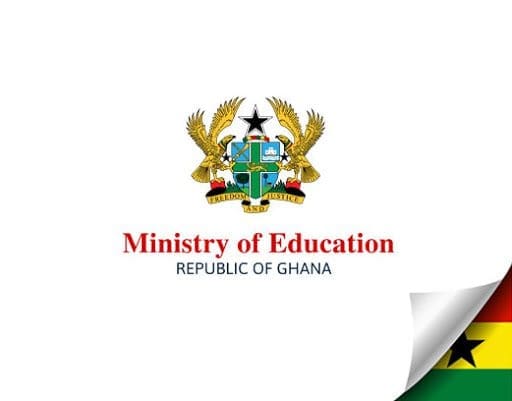Over 590,000 first-year students have begun reporting to Senior High Schools across Ghana for the 2025/2026 academic year, with the Ministry of Education urging them to approach this crucial phase of their lives with dedication, discipline, and enthusiasm.
The massive influx began Saturday, October 18, 2025, with students expected to complete reporting by Monday, October 20, 2025. In a statement signed by Hashmin Mohammed, Press Secretary to the Minister for Education, the Ministry described the moment as a major milestone in the students’ academic journey and congratulated them on reaching this significant achievement.
“We urge the students to approach this next phase of their education with dedication, discipline, and enthusiasm,” the Ministry stated, emphasizing the importance of maintaining focus during what many consider the most formative years of academic development.
The Ministry also expressed appreciation to parents and guardians for their patience and cooperation throughout what proved to be a challenging school placement exercise. With over 300,000 students seeking placement but only 76,000 vacancies available in Category A and B schools, the process tested the resolve of families across the country.
The statement announced that placement into schools and residential status for the new academic year has officially closed. Parents were encouraged to proceed to their assigned schools to complete enrollment processes and help their wards settle in smoothly for the commencement of academic work.
Reaffirming its commitment to equitable and inclusive education, the Ministry assured Ghanaians it’s taking all necessary measures to ensure a smooth start to the new school year. However, that assurance comes against a backdrop of significant infrastructure challenges and financial constraints facing the education sector.
The 2025/2026 academic year operates under a blended track system, with both single-track and transitional double-track schools in place. According to schedules released by the Ghana Education Service, single-track schools will end the academic year on August 21, 2026, while double-track transitional schools will close on September 4, 2026.
Under the single-track system, first and second-year students reported on October 18, 2025, while third-year students resumed earlier on October 11, 2025. The first term will run until February 27, 2026, with a Christmas break set for December 20, 2025, to January 4, 2026. The second term begins on May 4, 2026, and closes on August 21, 2026.
For transitional schools, the timetable differs slightly. First-year students reopened on October 18, 2025, while third-year students return on October 27, 2025. Second-year students are expected back on January 5, 2026, for a blended term that includes five weeks of online learning before fully resuming in May.
The 2026 West African Senior School Certificate Examination will take place from April 20 to June 20, 2026, and the 2026/2027 academic year is expected to begin on September 11, 2026.
Education Minister Haruna Iddrisu recently admitted to major challenges in the SHS placement process and outlined urgent interventions. Speaking at a press conference in Accra on Monday, October 14, 2025, he revealed that although over 300,000 students sought SHS placement this year, only 76,000 vacancies exist within Category A and B schools, creating a significant shortfall that triggered widespread public concern.
“What we are witnessing is one of the greatest challenges in the SHS placement process,” Iddrisu said. “The arithmetic simply does not add up. We do not have enough vacancies at the Category A level for the number of desirous and qualified applicants.”
To correct this imbalance, the Minister announced that the Ministry will pursue aggressive infrastructure expansion across selected Senior High Schools, beginning in 2026, to increase intake capacity. He confirmed he’s already initiated discussions with the Minister for Finance for budgetary support and funding allocations to begin implementation.
Beyond placement challenges, schools continue facing serious financial constraints that place overwhelming burdens on school heads. The Conference of Heads of Assisted Secondary Schools has reported that recurrent funds required for smooth running of schools have been in arrears since 2021, making it extremely difficult, especially in day schools, to procure even basic administrative materials such as stationery and examination supplies.
Similarly, feeding grants for perishable and non-perishable food items have been in arrears since June 15, 2025. The one hot meal for day schools is also a challenge, with caterers threatening to stop feeding students if their arrears aren’t paid.
The Ministry of Education set up school placement resolution centers in major regional capitals on Friday, September 18, 2025, to receive complaints from parents and guardians. These centers handle complaints, verify placement details, and provide quick redress.
Speaking to media after visiting the National School Placement Resolution Centre in Accra on Thursday, October 9, 2025, Mohammed expressed satisfaction with the progress made. He noted that the Ministry had significantly reduced the large crowds that initially gathered at the center by moving in more personnel to attend to issues swiftly.
The Mahama administration intends to expand the Free SHS program started in 2017 by the erstwhile Akufo-Addo government to ensure access for all Ghanaian students while improving upon the quality of teaching, learning, and infrastructure.
For the 590,000 students now beginning their SHS journey, the challenges facing Ghana’s secondary education system may seem distant concerns. What matters most is the opportunity before them: three years to develop academically, discover their strengths, and prepare for whatever comes next.
The Ministry’s call for discipline and dedication isn’t empty rhetoric. It reflects recognition that these students face a complex educational landscape marked by infrastructure gaps, financial constraints, and systemic challenges that won’t disappear overnight. How they navigate these realities while maintaining focus on their studies will determine not just their individual futures but Ghana’s collective prospects.
Whether the government can deliver on promises of infrastructure expansion and financial stability remains uncertain. What’s clear is that the class of 2028 has begun their journey, and regardless of the obstacles ahead, their success will depend largely on the dedication and discipline the Ministry has urged them to embrace.
Source: newsghana.com.gh











